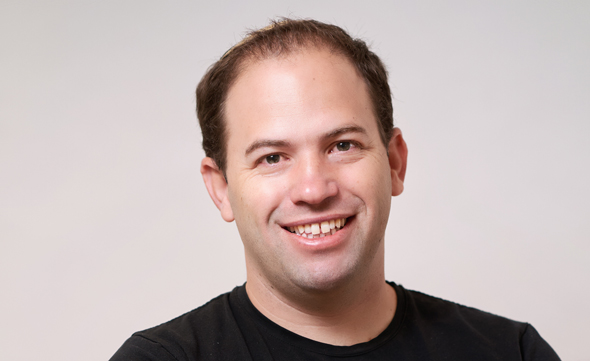To sell or not to sell? Pileus’ CEO has his answer
Roni Karp “had more than a few sleepless nights over this decision,” but is certain the $28 million deal with Anodot was the right call
13:4426.12.21
“I think that with all due respect to fundraising rounds and the ‘money on the floor,’ the possibility of building a larger company with Anadot, which quite a few funds have already invested in, is better down the line,” explained Anodot’s new CTO Roni Karp.
The co-founder and CEO of Pileus is still getting used to the new title he received after Anodot acquired his cloud cost management platform in November for $28 million. “It was a big question for us if we want to continue our journey by ourselves, or do we take Anodot’s offer,” Karp explained the dilemma he and co-founder Gabriel Goldman had. “We raised about $2.5 million in our Seed round, and they bought us for about $28 million, but we made sure that part of the deal was in shares because we do believe in this cooperation. Essentially, we said, we can grow by ourselves, but we see a very good opportunity and momentum to everything related to cloud costs, and the ability to scale up quickly leveraging Anodot’s resources seemed right.”
 Anodot CTO and Pileus co-founder Roni Karp. Photo: Roei Shor
Anodot CTO and Pileus co-founder Roni Karp. Photo: Roei Shor The dilemma facing Pileus’ founders was very clear. On the one hand, the Israeli tech ecosystem has been red hot over the past couple of years, with mega-funds injecting capital, forcing smaller investors to pick up their game, and helping companies to scale or go public. While on the other hand, a trend of Israeli companies buying one another has also emerged.
“As an entrepreneur, I had more than a few sleepless nights over this decision,” Karp said. “If it is the right time, is it too soon, because it had only been two and a half years between the Seed and the acquisition. But in the end, what I think guided me was the thought that if Pileus is going to succeed, it has better chances with Anodot’s resources. And if it will fail with Anodot then it would probably have failed on its own too.”
Karp further explained his decision to go with Anodot from the production aspect. “Anodot offers the most advanced algorithm in the market, by far. Their strong suit is finding anomalies in user experience and revenue, but what they were missing and we bring them is the issue of costs. So our cooperation will give clients one place to go to for insights about all three: costs, revenue and user experience for their cloud management.”
Pileus was founded in 2019 by Karp and Goldman, “we used to work together at Intuit,” and it was born out of their experience there, witnessing a company moving to the cloud but disregarding the costs to some extent. “Companies have invested a lot of resources in the process, focusing on performance and security but often neglecting costs, which grew exponentially and got out of hand for a lot of companies. The Pileus platform empowers those organizations to better manage their cloud costs,” he said
Related articles:
- Anodot acquiring fellow Israeli cloud startup Pileus
- An educational exit: Mashov acquired for over $15 million
- Vimeo acquires Wibbitz in underwhelming exit
Pileus’ SaaS platform aims to help companies manage and reduce their cloud costs by providing better visibility and budget management capabilities. The system supports AWS, Microsoft Azure, and Google Cloud, providing cost optimizations recommendations. “We help you organize things and break down your costs, so now you know how much everything costs,” he explained. “Second, we suggest actions that will cut your costs, we basically scan your cloud actions and tell you where you can save. And third, we monitor, if we see a spike in costs we alert the client, the ability to recognize anomalies is crucial in cost-cutting.”
When asked what kind of tips he might have to offer to young entrepreneurs thinking of accepting an early offer to be acquired or if to continue to scale on their own, Karp did not want to be adamant. “I think it very much depends,” but he insists they need to remember the decision will have a great effect on those closest to them. “It depends on their clients, the feedback they receive, the place they want to reach, how much they raised, and how they will deal with sleepless nights. I am laughing but it is important for entrepreneurs to realize, for three years I barely slept, and it takes its toll.”



